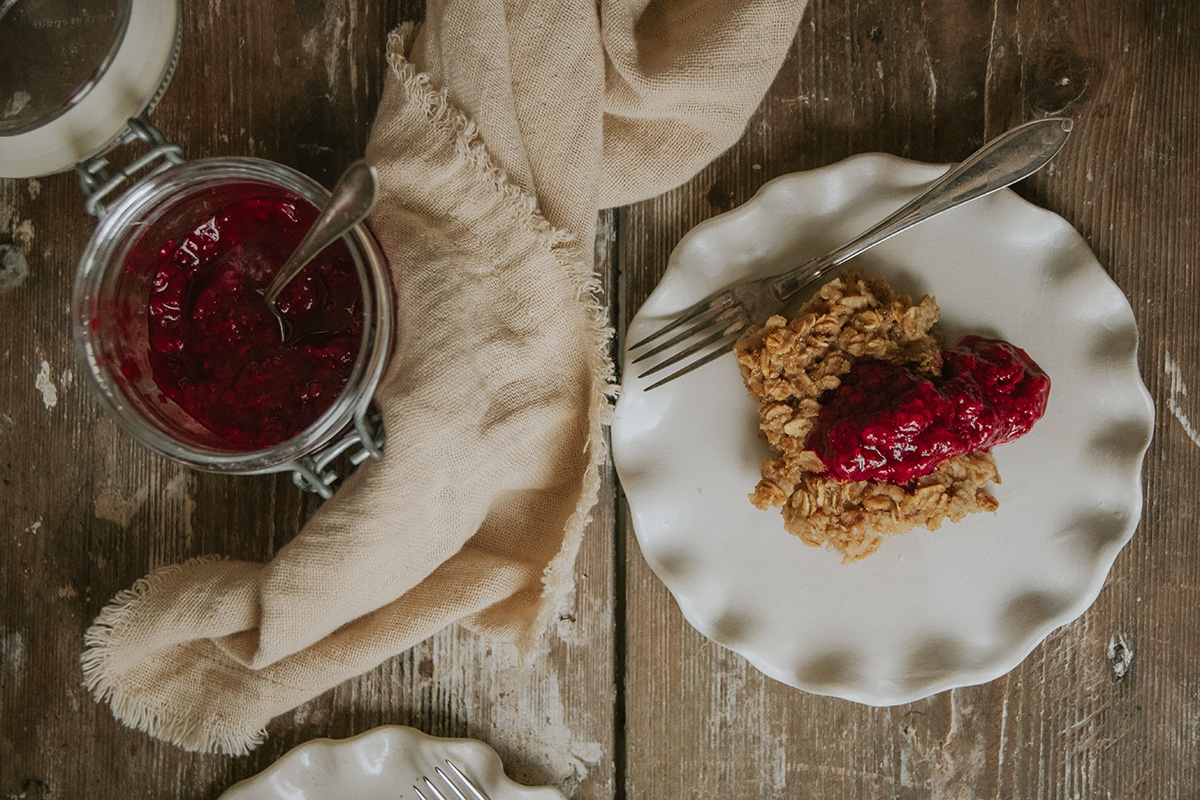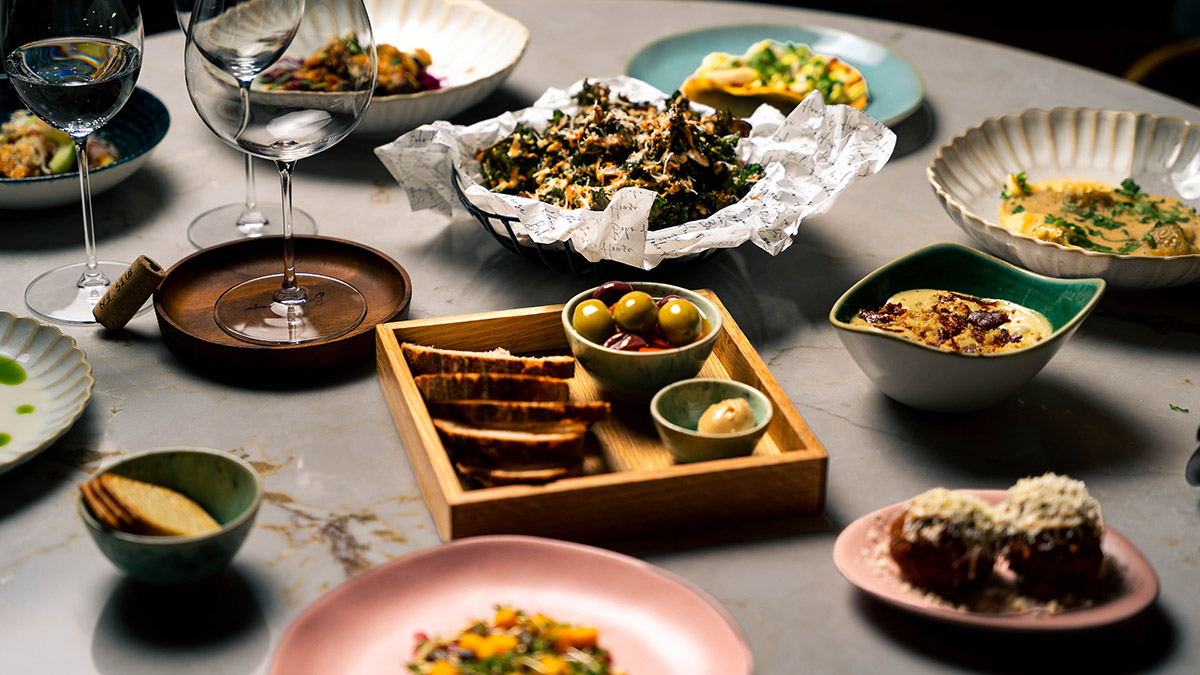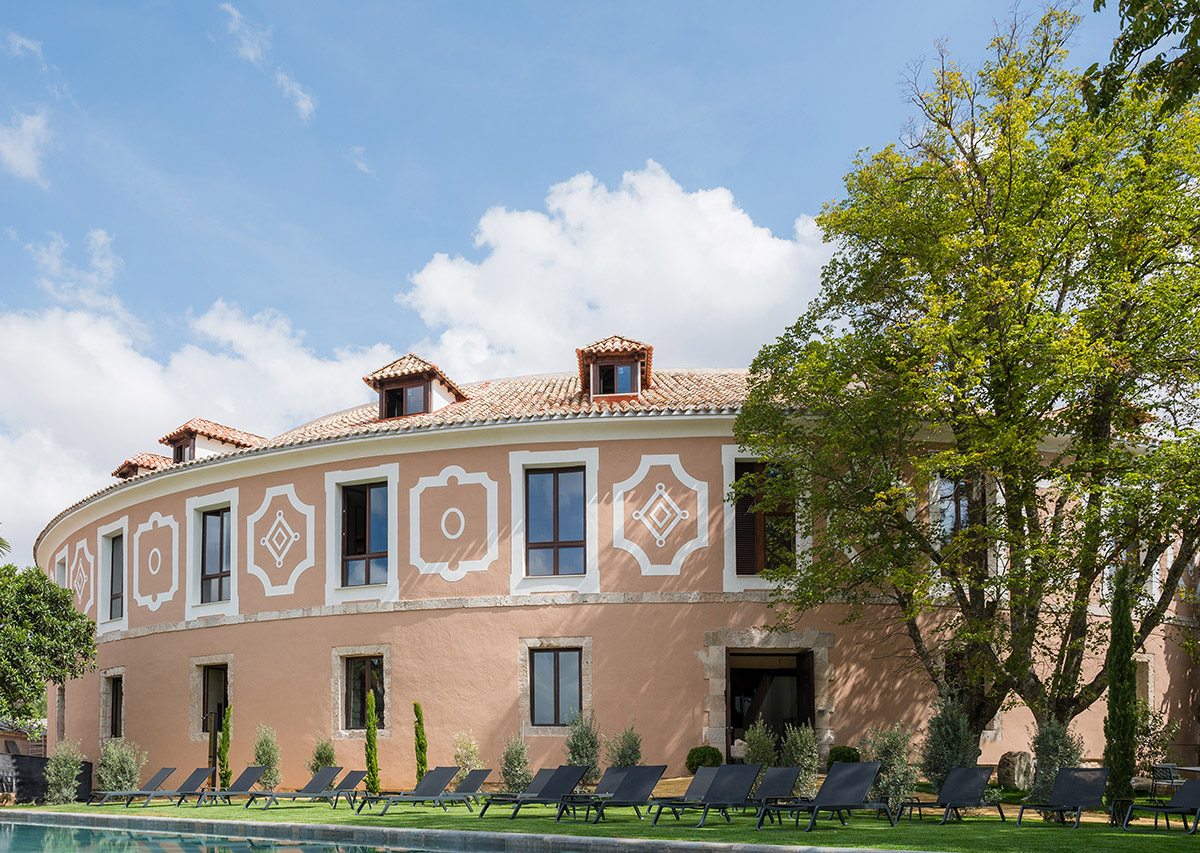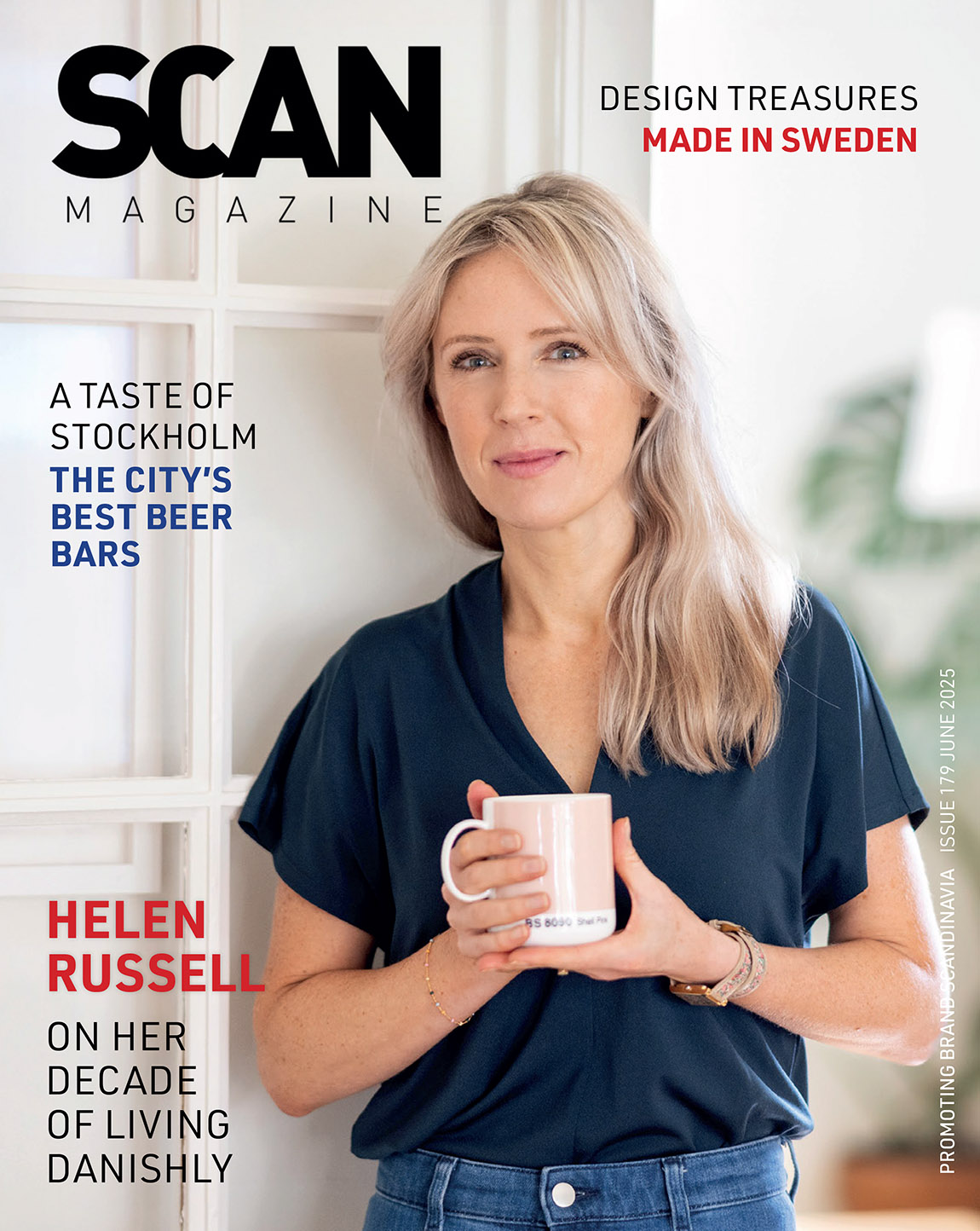Hibana: A taste of Japan in the Arctic
By Hanna Margrethe Enger | Photos: Ulrikke Lorentzen
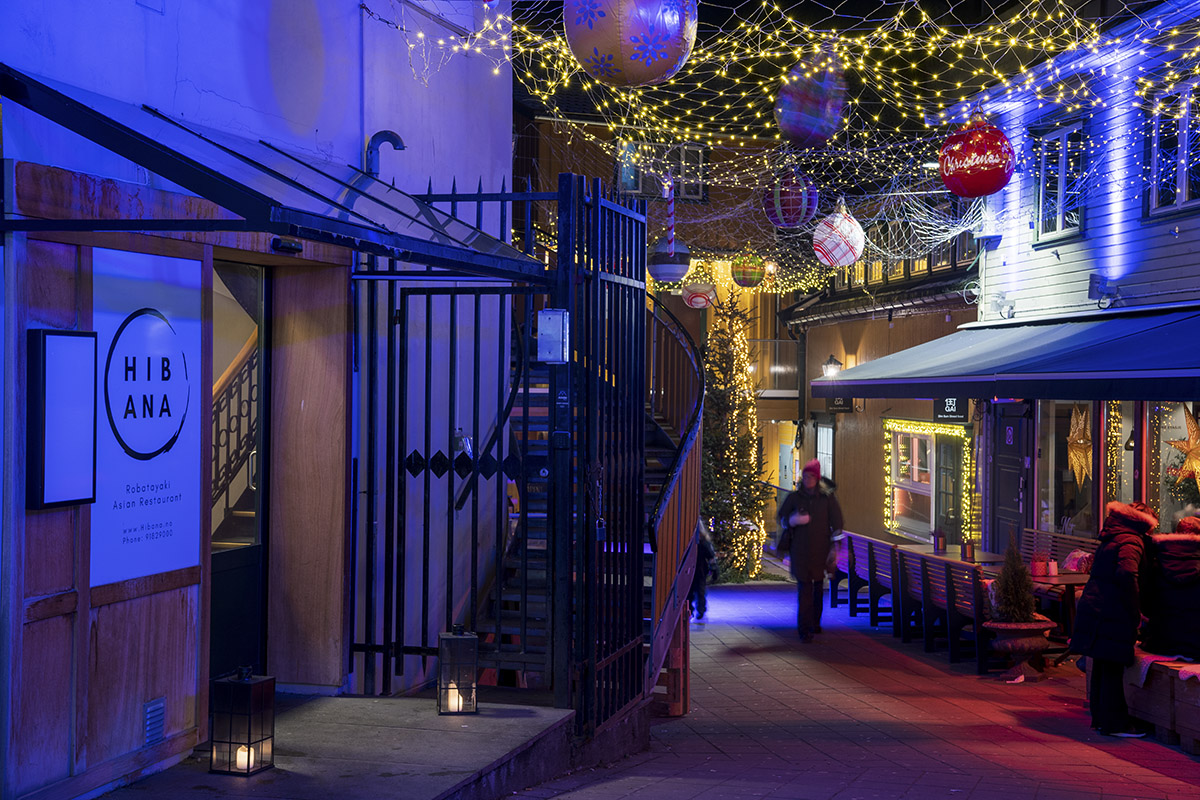
You find the entrance down this lovely alley.
Not many people would open a new restaurant at the tail-end of a pandemic, but that is what Dick Chiang did. He was already an established restaurant owner in Tromsø, Norway, with a successful sushi restaurant under his belt, so when his favourite restaurant space became available in late 2021, he jumped at the chance to open something new.
Hibana means ‘fire spark’ and it fits both the restaurant and its owner. Chiang is passionate about food, and at the restaurant, meat is grilled on an open fire using the Japanese robatayaki method. Often shortened to ‘robata’, it is similar to barbequing. But the Josper Robatagrill in the kitchen at Hibana is unlike anything you’d find in a regular home garden. At 1.5 meters tall and able to reach temperatures of 350 degrees centigrade, it is enough to make any barbeque enthusiast quite jealous indeed.
Chiang’s passion caught the eye of the building’s owner. He loved Chiang’s concept and Hibana was soon able to move into Mackgården, a beautiful Art Nouveau building. The restaurant shares a cosy alleyway with a few other restaurants and bars, and is a lovely little destination in itself, with a great atmosphere.
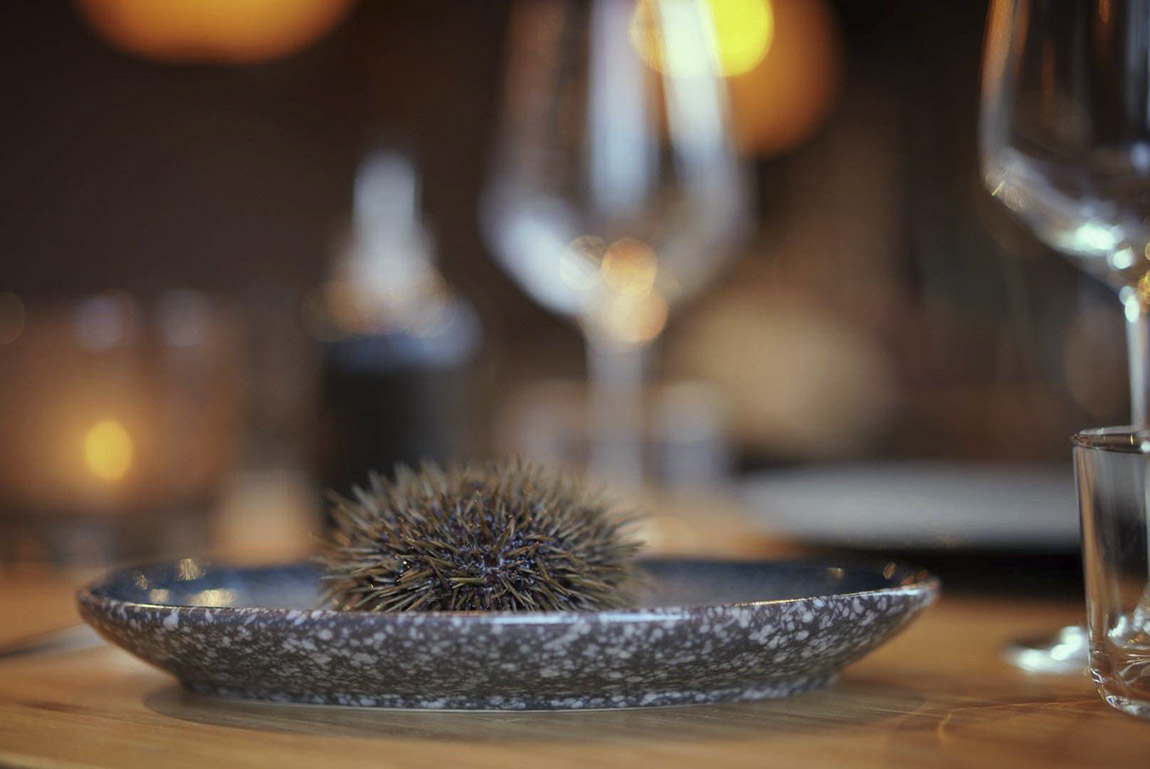
Sea urchin.
True global fusion
Though Chiang knows Japanese and Asian flavours well, he wanted someone who knew how to use local ingredients. But finding someone like that to join his kitchen team proved difficult. Chiang chose chefs with a background in French cuisine. He found three chefs from London and brought them to Tromsø. “We started playing with local ingredients in a French and Japanese way,” Chiang explains. “We have, for example, rack of reindeer instead of rack of lamb, which we grill and serve with Korean chilli beans.”
They also serve gyoza with ‘klippfisk’ – salted and dried cod, and dim sum with prawns from Lyngen. Northern Norway is a treasure chest for seafood lovers, and Hibana is perfecting the fusion of Norwegian, French and Asian.
Informal fine dining
For Hibana, nothing is more important than high-quality ingredients, and the more local, the better. Though they are uncompromising on using the best ingredients and providing excellent service, at a fine dining level, Hibana is a very informal restaurant. The atmosphere is laid back, cosy and a little rustic. The aim is to make the guests feel at home.
“Initially we based the idea on izakaya, a Japanese bar and grill concept where people meet after work to have a glass of beer or sake and be served some grilled food on the side. Now, we’ve switched to a tasting menu, where the chefs put together lots of dishes and fill the table with delicious food,” explains Chiang.
Sharing food like this is a very social from of dining – something common in Asia, but not so much in Norway. Still, Norwegians have warmly embraced it. “When there are more people around the table, the threshold for trying something new is lower. It makes people more adventurous,” says Chiang. “For example, if we serve sea urchins, those who have never tried it before might say no thanks. But then someone else tries it, and then the others have to try it, too.”
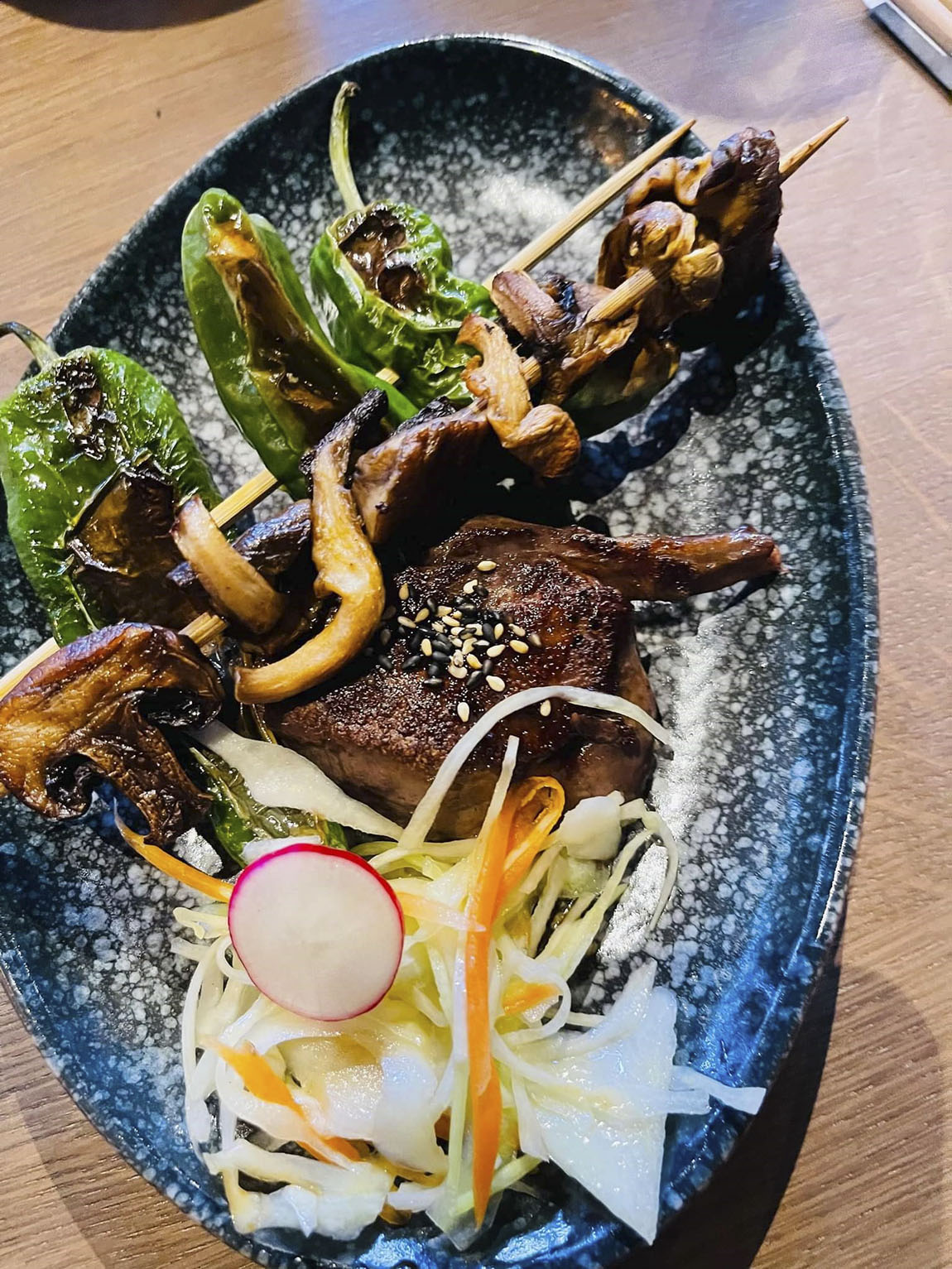
Rack of reindeer.
The best, freshest ingredients
A dish is only as good as its ingredients, and Tromsø is spoilt when it comes to local produce. The fjords and the Norwegian sea provide Hibana with fresh fish, king crab and sea urchins. While they take pride in using local ingredients, not everything can be locally sourced.
Hibana is mostly about robata and great pieces of meat, from ribeye and tenderloin to Omaha and Toma Hawk. They even serve Wagyu, the finest and most succulent steak in the world. Wagyu is, of course, not local to Tromsø, but you can be certain the quality is top notch. And you are unlikely to find it anywhere else in the city.
Chiang started Hibana because he missed Japan and he missed robata. With a landlord who believed in his idea, and chefs who moved countries for him, he has created something very special, both for Tromsø locals and for visiting tourists.
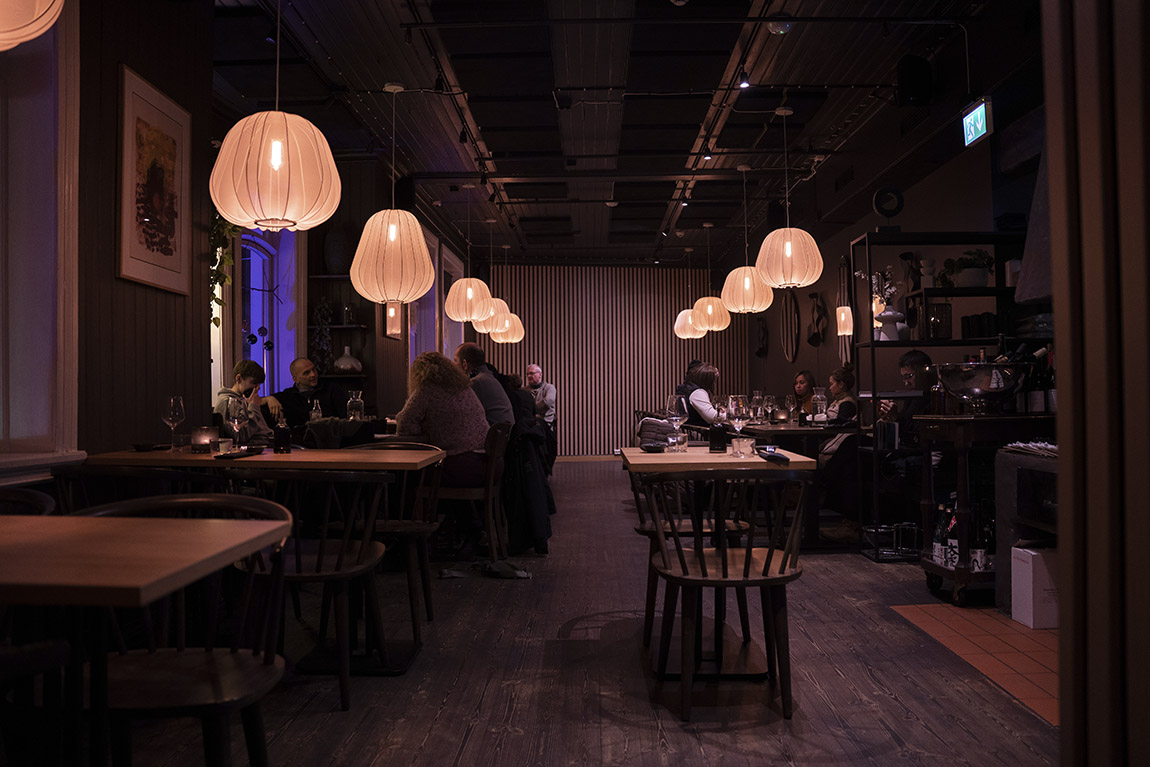
The restaurant has a cosy atmosphere.
Web: www.hibana.no Instagram: @hibanarobata Facebook: hibanarobata
Subscribe to Our Newsletter
Receive our monthly newsletter by email

